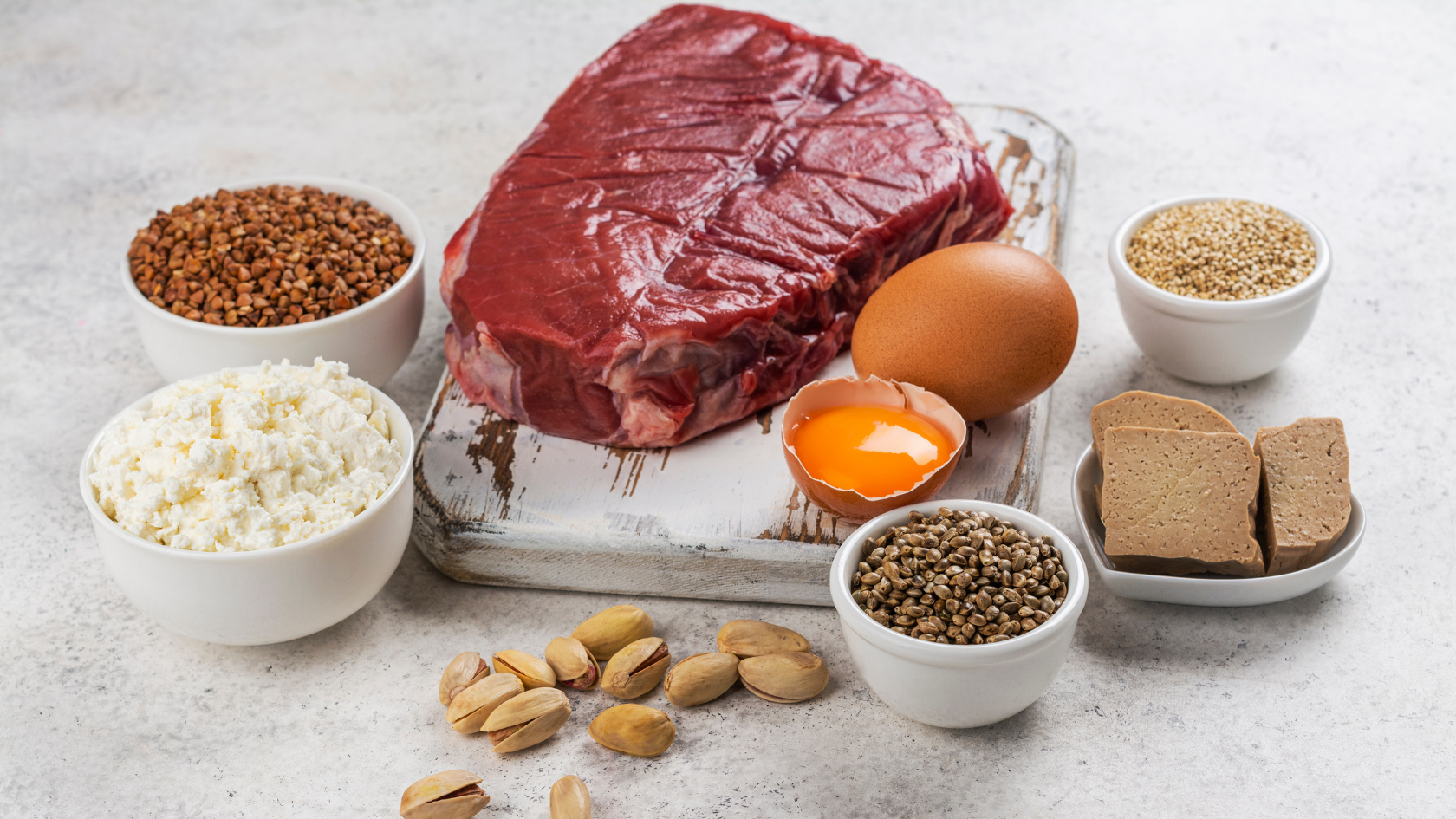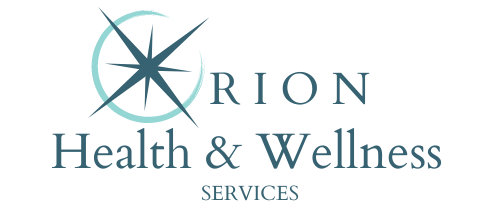Did you know that protein is one dietary component that plays another significant role in the challenging journey of losing weight? Protein intake boosts metabolism, controls appetite, and preserves lean muscle mass, resulting to a leaner, healthier body. Adding the right amount of protein to your meals ensures that you’re burning fat while keeping your muscles intact.
Moreover, protein helps you feel full longer, minimizing the temptation to snack excessively and aiding in adherence to a diet with controlled calories. By boosting your body’s metabolic function and promoting a fuller feeling, consuming sufficient protein is a vital tactic for achieving lasting and effective weight loss.
This time, why don’t we talk about protein’s weight loss benefits and explore the optimal protein intake for maximizing results. Whether you’re following a low-carb diet, a plant-based diet, or simply looking to incorporate more protein-rich foods into your meals, we’ve got you covered with practical tips and strategies.
Table of Contents
The Importance Of Protein In Weight Loss

Incorporating adequate protein into your diet, you can support your weight loss goals effectively, ensuring that you not only lose weight but do so in a healthy, sustainable manner that preserves muscle mass and keeps your metabolism active.
Satiety and Appetite Control: Protein is more satiating than carbohydrates or fats, which means it can help you feel full longer. This helps reduce overall calorie intake by minimizing hunger and the likelihood of snacking on high-calorie foods.
Increased Metabolism: Consuming protein has a higher thermic effect than other nutrients, meaning your body uses more energy to digest and metabolize it. This increase in energy expenditure can boost your metabolism, aiding in weight loss.
Muscle Preservation: During weight loss, there’s a risk of losing muscle along with fat. Protein intake supports muscle repair and growth, ensuring that your weight loss is predominantly fat. Maintaining muscle mass is crucial because muscle tissue burns more calories at rest compared to fat tissue, contributing to a higher metabolic rate.
Improved Body Composition: High protein intake can lead to significant reductions in body fat while preserving lean muscle mass, leading to a more toned and defined physique.
Better Nutrition: Incorporating protein-rich foods into your diet can also improve your overall nutrition, as many protein sources are rich in essential nutrients, vitamins, and minerals that support overall health.
The Impact Of Protein On Metabolism And Caloric Expenditure
The impact of protein on metabolism and caloric expenditure is significant and multifaceted, influencing weight management and body composition. Protein affects the body’s metabolic rate and overall energy expenditure in several key ways, making it a crucial macronutrient for anyone looking to lose weight, maintain muscle mass, or improve their metabolic health.
Increased Thermic Effect of Food (TEF)
The thermic effect of food (TEF) refers to the amount of energy required to digest, absorb, and process nutrients from the foods we eat. Protein has a much higher thermic effect compared to carbohydrates and fats. Specifically, the TEF of protein is about 20-30%, meaning that 20-30% of the energy from protein is used during the digestion and metabolism process, compared to 5-10% for carbs and 0-3% for fats. This elevated thermic effect means that the body burns more calories to process protein, which can contribute to increased daily caloric expenditure and weight loss.
Satiety and Reduced Caloric Intake
Protein is more satiating than carbohydrates and fats, meaning it can help you feel fuller for longer periods. This satiety effect can lead to a natural reduction in caloric intake, as individuals may feel less need to snack or overeat. The mechanism behind protein’s satiating effect involves changes in hunger hormones, such as an increase in satiety hormones (e.g., GLP-1, peptide YY) and a decrease in hunger hormones (e.g., ghrelin). By helping to regulate appetite and reduce overall calorie consumption, protein can play a crucial role in weight management and fat loss.
Muscle Preservation and Metabolic Rate
Muscle tissue is metabolically active, meaning it burns calories even at rest. Protein intake is essential for muscle repair and growth, especially important during weight loss or in individuals engaged in regular strength training. By preserving lean muscle mass through adequate protein intake, individuals can maintain or even increase their resting metabolic rate (RMR), the rate at which the body burns calories at rest. A higher RMR means that the body burns more calories throughout the day, contributing to weight loss and the prevention of weight regain.
Protein and Energy Expenditure in Weight Loss
During weight loss, the body can lose not only fat but also muscle mass, which can slow down the metabolism. A higher protein intake can help counteract this effect by promoting muscle synthesis and reducing muscle loss, even in a caloric deficit. This preservation of muscle mass helps maintain a higher metabolic rate, making it easier to lose fat and maintain weight loss over time.
Busting The Common Protein Myths
When it comes to protein intake and weight loss, several misconceptions can lead to confusion and misinformed dietary choices. Two prevalent myths include concerns about protein causing kidney damage and the belief that high protein intake will lead to an overly muscular, bulky physique. Let’s address these concerns with current evidence, shall we?
Misconception 1: Too Much Protein Is Bad for Your Kidneys
The Reality: Numerous studies have shown that protein intake within a reasonable range, even at levels above the Recommended Dietary Allowance (RDA), does not cause kidney damage in healthy people. The kidneys are remarkably efficient at processing dietary protein, and there is little evidence to suggest that a high-protein diet poses a risk to kidney health in individuals without pre-existing kidney disease.
Misconception 2: Protein Makes You Bulky
The Reality: Gaining significant muscle mass requires not only high protein intake but also consistent, intensive resistance training over time. Protein supports muscle repair and growth, but muscle hypertrophy (increase in muscle size) occurs as a result of progressive overload and the adaptation of muscle fibers to increased demands, typically through strength training.
For the average person, increasing protein intake within a balanced diet and engaging in regular exercise can lead to improvements in body composition, such as increased lean muscle mass and reduced body fat, without necessarily resulting in a “bulky” appearance. The process of building substantial muscle mass is gradual and intentional, involving specific training regimens and nutritional strategies.

The Science Behind Protein And Weight Loss
Protein plays a pivotal role in weight loss through several interconnected mechanisms, including thermogenesis, muscle synthesis, and the regulation of hunger hormones. Understanding these processes can illuminate how increased protein intake contributes to weight management and fat loss.
Thermogenesis
Thermogenesis refers to the process by which the body generates heat, a function that consumes calories. Protein has a high thermic effect, meaning that the body uses a significant amount of energy to digest, absorb, and metabolize it. In comparison to fats and carbohydrates, protein can increase the metabolic rate by 15-30%, while carbs increase it by 5-10% and fats by 0-3%. This increased energy expenditure can contribute to weight loss by boosting the number of calories the body burns throughout the day.
Muscle Synthesis
Protein is the building block of muscle tissue. Adequate protein intake supports muscle synthesis, especially when combined with resistance training. Muscle tissue is metabolically active, meaning it burns calories even at rest. By promoting muscle maintenance and growth, protein intake can prevent the muscle loss often associated with calorie-restricted diets. Preserving muscle mass is crucial during weight loss because it helps sustain the metabolic rate, making it easier to lose fat and maintain weight loss in the long term.
Regulation of Hunger Hormones
Protein intake influences the levels of several hormones that control appetite and satiety, including ghrelin (often referred to as the “hunger hormone”) and GLP-1 and peptide YY, which promote feelings of fullness. Consuming protein can lead to a decrease in ghrelin levels and an increase in satiety hormones, leading to a reduction in hunger and overall calorie intake. For instance, a high-protein breakfast has been shown to significantly affect the hormones that control hunger and fullness, reducing the desire to snack and leading to lower calorie intake throughout the day.
By enhancing thermogenesis, supporting muscle synthesis, and regulating hunger hormones, protein plays a crucial role in weight loss and management. Incorporating adequate protein into the diet can thus be an effective strategy for enhancing weight loss efforts, helping individuals feel fuller for longer, maintaining metabolic rate through muscle mass preservation, and ensuring that the body burns more calories through the thermic effect of food.
High Protein Foods For Weight Loss

There are a variety of animal and plant-based options to choose from, ensuring that you can find protein sources that suit your dietary preferences.
Eggs: A versatile and affordable source of high-quality protein, with the added benefit of containing vitamins and minerals essential for health.
Lean Meats: Chicken breast, turkey, and lean cuts of beef and pork offer substantial amounts of protein with minimal fat, making them excellent for weight loss.
Fish and Seafood: Salmon, tuna, shrimp, and cod are not only rich in protein but also provide healthy omega-3 fatty acids.
Legumes: Beans, lentils, chickpeas, and peas are fantastic plant-based protein sources, also high in fiber, which can enhance satiety and aid digestion.
Dairy Products: Greek yogurt, cottage cheese, and low-fat cheese are high in protein and can also contribute calcium and other vital nutrients.
Nuts and Seeds: Almonds, chia seeds, flaxseeds, and pumpkin seeds are protein-packed options that also offer healthy fats and fiber, though they are calorie-dense, so moderation is key.
Tofu and Tempeh: Excellent sources of plant-based protein, these soy products are versatile in cooking and can be great meat substitutes.
Quinoa: Unlike many grains, quinoa is a complete protein, containing all nine essential amino acids, making it a great addition to vegetarian and vegan diets.
Protein Powders: Whey, casein, soy, and pea protein powders can be a convenient way to boost protein intake, especially for post-workout recovery or meal replacement.
Edamame: Young soybeans are a tasty and nutritious snack or side dish, providing protein along with fiber and vitamins.
Take The First Step And Empower Your Health
Step into a world of effective weight management with our specialized guidance on optimal protein consumption here at Orion Health & Wellness Services.
It's time to unlock your body's natural potential for lasting weight management.
Learn MoreRecommended Daily Protein Intake For Weight Loss
The optimal protein intake for weight loss depends on various factors, including your weight, activity level, and goals. As a general guideline, it’s recommended to consume 0.8 to 1 gram of protein per pound of body weight. For example, if you weigh 150 pounds, your daily protein intake should be between 120 and 150 grams.
However, if you’re following a low-calorie diet or engaging in intense physical activity, you may benefit from a higher protein intake. In such cases, consuming 1.2 to 1.5 grams of protein per pound of body weight can be more beneficial for preserving muscle mass and promoting weight loss.
It’s important to spread your protein intake evenly throughout the day, rather than consuming it all in one meal. This allows your body to efficiently utilize the amino acids from protein and maximize muscle protein synthesis. Aim to include a source of protein in each meal and snack to meet your daily requirements.
Protein For Every Age
Protein needs can vary significantly across different age groups, influenced by various factors including growth, activity level, and the need for maintenance and repair of body tissues. Understanding these needs is crucial for optimizing health, building and preserving muscle mass, and supporting overall physiological functions.
Young Adults
For young adults, protein is essential for supporting growth, hormonal changes, and the increase in muscle mass that typically occurs during this life stage. Young adults are often at a peak stage for muscle building, thanks in part to higher levels of growth and sex hormones such as testosterone and estrogen. The Recommended Dietary Allowance (RDA) for protein for adults is 0.8 grams per kilogram of body weight per day, but young adults who are active or engaged in resistance training may benefit from higher intakes, ranging from 1.2 to 2.0 grams per kilogram of body weight, to support muscle synthesis, repair, and overall growth.
For young adults, especially those involved in athletic activities or strength training, protein is not just about quantity but also timing and quality. Consuming high-quality protein sources (those containing all essential amino acids) soon after exercise can maximize muscle protein synthesis, a key process in muscle recovery and growth.
Older Adults
As individuals age, maintaining muscle mass becomes a crucial aspect of preserving functional independence and reducing the risk of falls and frailty, a concept known as sarcopenia (age-related muscle loss). After the age of 30, adults can lose 3-5% of their muscle mass per decade, a rate that can increase with physical inactivity.
For older adults, the protein RDA may underestimate needs, and emerging research suggests that higher protein intakes, in the range of 1.2 to 1.5 grams per kilogram of body weight per day, may be more effective in preserving muscle mass and strength. This increased need is partly due to anabolic resistance, a condition where the body is less efficient at synthesizing muscle protein in response to dietary protein and physical activity.
Moreover, protein distribution throughout the day is particularly important for older adults. Consuming protein in evenly distributed amounts at each meal can help maximize the body’s ability to synthesize muscle protein, counteracting age-related muscle loss.
Tips For Incorporating More Protein Into Your Diet
Incorporating protein into your diet effectively requires a thoughtful approach to ensure you’re meeting your nutritional needs and supporting your health goals. Here are some tips to help you integrate protein seamlessly into your meals:
Balance Your Meals: Aim to include a source of protein in every meal to ensure a steady intake throughout the day, which can help maintain muscle mass and keep you feeling full longer.
Choose Lean Proteins: Opt for lean sources of protein like chicken breast, turkey, fish, and legumes to reduce intake of saturated fats associated with some high-protein foods.
Consider Plant-Based Options: Don’t overlook plant-based proteins such as beans, lentils, tofu, and quinoa. They provide not only protein but also fiber and other essential nutrients.
Mind Your Portions: While protein is essential, it’s important to consume it in moderation as part of a balanced diet. Too much protein can lead to excessive calorie intake and potential strain on your kidneys.
Combine Proteins: Especially if you’re following a plant-based diet, combine different protein sources throughout the day to ensure you’re getting all essential amino acids.
Prep for Convenience: Prepare protein-rich snacks and meals in advance to ensure you have healthy options on hand, preventing the temptation to opt for less nutritious choices.
Stay Hydrated: Increasing protein intake, especially from sources like protein powders, can require increased fluid intake to help your body process the protein efficiently.
Cook Smart: Use healthy cooking methods like grilling, baking, or steaming to prepare your protein sources, avoiding added fats from frying.
Track Your Intake: If you have specific health or fitness goals, consider tracking your protein intake using a food diary or app to ensure you’re meeting your targets without exceeding them.
Consult a Professional: If you have dietary restrictions, health conditions, or specific fitness goals, consult with Orion Health & Wellness Services for a personalized advice on incorporating protein into your diet safely and effectively. Orion Health & Wellness takes pride in their dedicated team of certified health professionals who are committed to guiding you every step of the way, offering support, education, and cutting-edge treatments to help you achieve and maintain your weight loss goals.
The Role Of Exercise In Optimizing Protein Intake For Weight Loss

Exercise plays a vital role in optimizing protein intake for weight loss. Resistance training, in particular, can help preserve and build lean muscle mass, which is important for increasing metabolism and promoting fat loss.
By engaging in regular strength training exercises, you can stimulate muscle protein synthesis and create an environment conducive to muscle growth. This, in turn, can help support weight loss efforts by increasing your metabolic rate and improving body composition.
Additionally, incorporating cardiovascular exercise into your routine can further enhance weight loss results. Activities like running, swimming, or cycling can increase calorie burn and create a greater energy deficit, contributing to weight loss when combined with a balanced diet and adequate protein intake.
Balancing Protein With Other Macronutrients In A Weight Loss Diet
Balancing protein with other macronutrients—carbohydrates and fats—is crucial in a weight loss diet for several reasons. This balance influences everything from satiety and muscle maintenance to metabolic health and energy levels. Here’s how to approach this balance effectively:
1. Understanding Macronutrient Roles:
- Protein: Essential for building and repairing tissues, including muscles, and plays a key role in producing enzymes and hormones. High protein intake can increase satiety, reduce appetite, and boost metabolism, aiding in weight loss.
- Carbohydrates: The body’s primary energy source, especially for the brain and during high-intensity exercise. Quality and quantity matter; focusing on fiber-rich sources like whole grains, fruits, and vegetables can improve satiety and support weight management.
- Fats: Essential for absorbing vitamins, hormone production, and providing energy. Healthy fats, such as those from avocados, nuts, seeds, and olive oil, should be incorporated for overall health and to help maintain satiety.
2. Protein and Satiety:
Protein is more satiating than carbohydrates and fats, meaning it can help you feel full longer. Incorporating a good protein source at each meal can reduce overall calorie intake by decreasing hunger and the desire to snack between meals.
3. Protein and Muscle Maintenance:
During weight loss, it’s important to not only lose fat but also preserve lean muscle mass. Protein is critical for muscle repair and growth. A diet balanced in protein can help maintain muscle mass, which is important as muscle tissue burns more calories than fat tissue, contributing to a higher resting metabolic rate.
4. Balancing for Metabolic Health:
A balanced intake of macronutrients supports metabolic health. For instance, excessive intake of refined carbohydrates can lead to spikes in blood sugar levels, whereas a balanced diet with adequate protein can help moderate these spikes. Healthy fats contribute to satiety and can support cardiovascular health.
5. Individual Needs and Preferences:
Balancing macronutrients should consider individual needs, preferences, and lifestyle. For example, an active person might need more carbohydrates for energy, while someone with a sedentary lifestyle might benefit from a lower carbohydrate intake. Personal preferences and dietary restrictions also play a significant role in determining the best balance.
6. Practical Tips for Balancing Macronutrients:
- Plate Method: Fill half your plate with vegetables, a quarter with lean protein, and a quarter with whole grains or starchy vegetables for a balanced meal.
- Snacks: Choose snacks that combine macronutrients, like apple slices with peanut butter, to improve satiety and provide sustained energy.
- Diverse Protein Sources: Incorporate a variety of protein sources, including plant-based options like legumes and tofu, to ensure a broad spectrum of nutrients.
Start Your Transformation Today
At Orion Health & Wellness Services, we understand the necessity for individualized approaches when it comes to weight loss. We go beyond the generic one-size-fits-all programs by incorporating advanced medical assessments and prescription medications tailored to your needs.
With us, you won't just lose weight fast; you'll achieve sustainable results.
Learn MoreTo Wrap It Up
Protein optimization is a powerful weight loss hack that should not be overlooked. By including adequate protein in your diet, you can boost metabolism, control appetite, and preserve lean muscle mass, ultimately leading to more successful and sustainable weight loss.
Remember to calculate your recommended daily protein intake based on your weight and goals, and aim to spread your protein intake evenly throughout the day. Incorporate high-protein foods into your meals and snacks, and consider protein supplements if needed.
Combine your protein optimization strategy with regular exercise, including both resistance training and cardiovascular activities, to maximize weight loss results. And finally, be aware of common misconceptions about protein and weight loss, ensuring you make informed decisions about your diet.
With the ultimate weight loss hack of protein optimization, you can take control of your weight loss journey and achieve the results you desire. So, start incorporating more protein into your diet today and unlock the power of this macronutrient for successful weight loss.
Frequently Asked Questions
Protein is essential for weight loss because it helps to increase satiety, reduce cravings, and boost metabolism. It also aids in preserving muscle mass during the weight loss process.
The recommended protein intake for weight loss is around 0.8-1 gram of protein per pound of body weight. However, individual needs may vary based on activity level, age, and overall health.
Consuming excess protein can lead to weight gain as it can contribute to overall calorie intake. It is important to strike a balance and ensure that protein intake is in line with overall energy needs.
Lean meats such as chicken, turkey, and fish are excellent sources of protein for weight loss. Other options include eggs, dairy products, legumes, and tofu.
Protein supplements are not necessary for weight loss if you are able to meet your protein requirements through a balanced diet. However, they can be a convenient option for individuals who struggle to consume enough protein through food alone.
